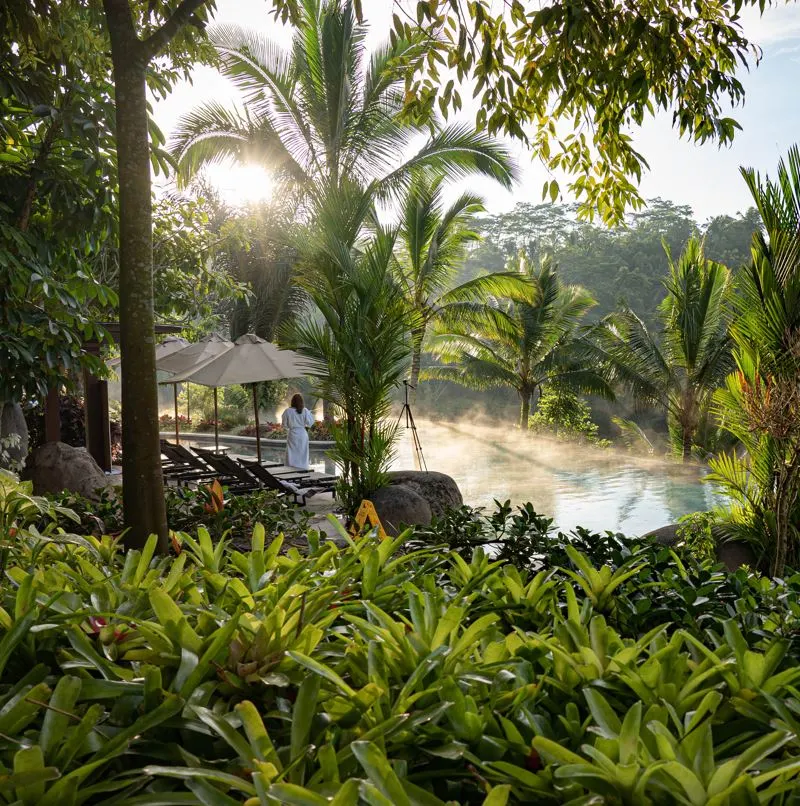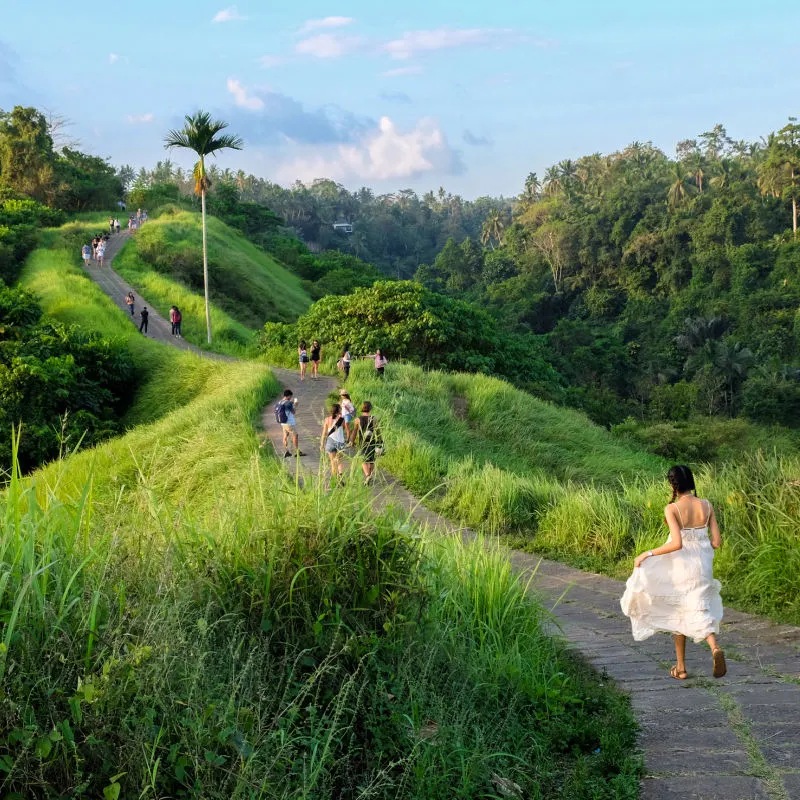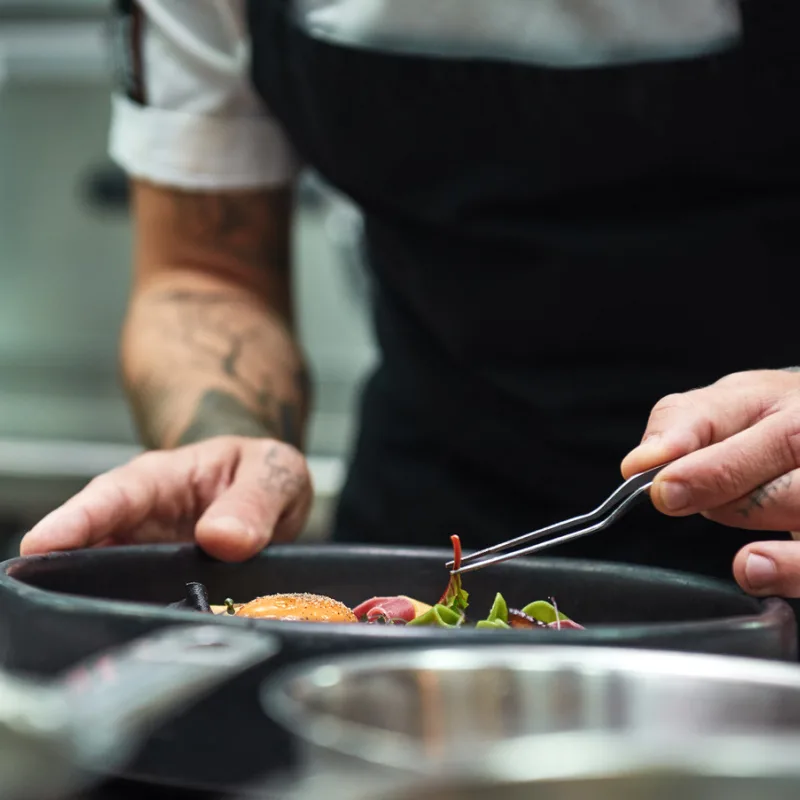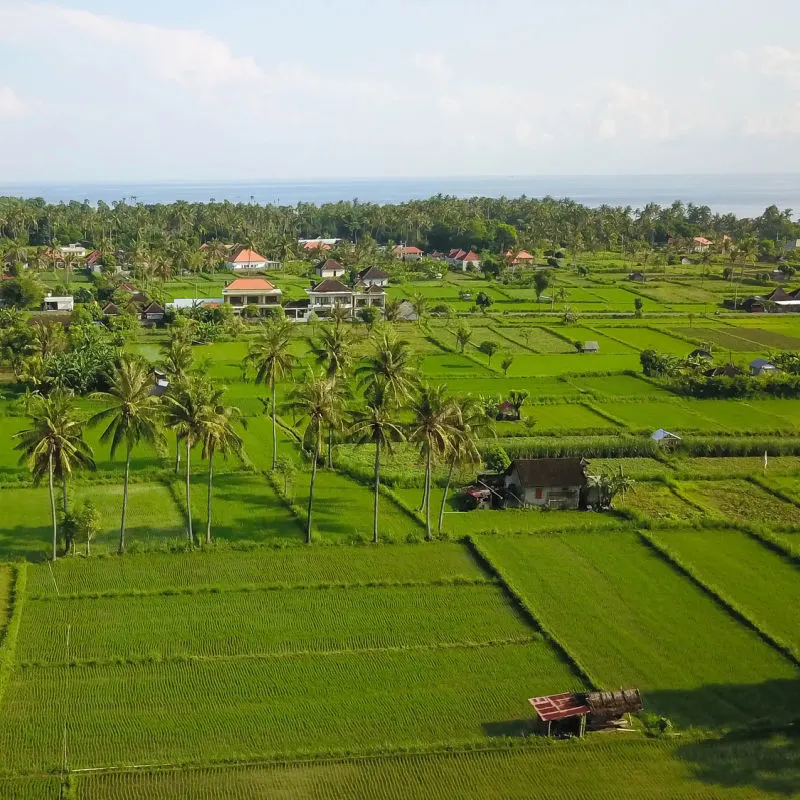Tourism in Bali is steadily shifting towards more environmentally sustainable practices. While some hotels are taking small progressive steps like stopping using plastic straws or changing bed linens fewer times during each guest’s stay, some hotels are taking even bigger steps.

Mana Ubud is one of Bali’s most highly regarded eco-tourism businesses. Mana Ubud is operated as a not-for-profit hotel. Managed by NGO Earthy Company, the hotel is described as the ‘next generation eco-hotel’, and they are going above and beyond to ensure their operation aligns with creating a sustainable future for Bali.
One small way Mana Ubud has greened up its operation is through rainwater harvesting. With flooding decimating communities across Bali and more agricultural land transformed into infrastructure, rainwater harvesting may not be able to solve the crisis entirely, but it will undoubtedly make a big difference.
The hotel’s Operations Manager, Mana Ubud, Ari Putrayasa, told reporters, “Rainwater treatment begins when the rain falls, it will be channeled into a large pipe at several points, then the water will be channeled to a filter in a ground tank with a capacity of 60 m³ with 2 filtration tubes. This amount of water can be used for half a month”.
Once the water is captured in the ground tank, it is then filtered so that it can be used throughout Mana Ubud’s operation. Firstly the water filters to remove dirt and silt. In the second filtration process, metal content is removed, and finally, the water is processed using UV light to break down any remaining bacteria.
Top 5 Travel Insurance Plans For 2023 Starting At $10 Per Week
Easily Earn Points For Free Travel
Putrayasa explained, “All this water is channeled to villas for the needs of tourists in the bathroom, if for cooking in the kitchen, the water is heated again. Even though it is suitable for drinking immediately, we have a special filtration that is used before the water can be consumed directly”.
Studies have shown that tourists consume significantly more water than local residents. He explained, “Tourists generally use 2,500 liters of water in Bali and only 180 liters for residents”. In addition to the rainwater system, Mana Ubud’s villas, cafe, shop, and market garden are all designed to promote regenerative living.
All of Mana Ubud’s six villas are built using sand in earth bags rather than bricks and cement. This natural material helps to keep the villas cool throughout the day. There are no TVs or air conditioning units in the villas to help reduce electricity and to help guests ease into the natural environment.
Putrayasa continued, “With this concept, the room will not be hot during the day or cold during the day. So we do not provide TVs and air conditioners in all rooms. The source of electricity from the lights that we use also comes from solar panels”. They also provide eco-friendly toiletries and use zero-waste mattresses to lower the ecological impact of their operation further.

Mana Ubud is also home to Mana Kitchen, a cafe that is open to the public for breakfast, lunch, and dinner. Much of the produce used in the menu are grown in Mana’s organic permaculture garden. Serving Indonesian and Japanese-inspired dishes, the menu is designed to ‘awaken your mind, body, and soul’.

What Mana Ubud showcases is many of the principles of ‘serenity, spirituality, and sustainability’ that tourism officials in Indonesia want to see more of on the island. Mana Ubud is listed on the Kembali Becik Green Pages Directory, an open resource that lists all of the island’s environmentally conciseness businesses.

Bali’s Governor Wayan Koster has been vocal about his commitment to ensuring that the infrastructural projects continue to receive support in Bali, as he believes they are the key to sustainable development. However, he is clear that all development must align with Balinese values and promote cultural heritage.
Businesses listed on Kembali Becik are all working in their own way to ensure that Bali builds greater climate resilience, especially in the tourism sector, which has received criticism for its negative impact on the local environment. “Kembali” means “to return” in Bahasa Indonesia, and “becik” is a Balinese word that means “good.”
Remove All Ads & Unlock All Articles… Sign up for The Bali Sun Premium

Plan Your Bali Holiday:
Book The Best English Speaking Drivers For Airport Transfers & Tours
Choose From Thousands of Bali Hotels, Resorts, and Hostels with Free Cancellation On Most Properties
Book Cheap Flights To Bali
Don’t Forget Travel Insurance That Covers Medical Expenses In Bali
For the latest Bali News & Debate Join our Facebook Community
SUBSCRIBE TO NEW POSTS
Enter your email address to subscribe to The Bali Sun’s latest breaking news, straight to your inbox.

Exp
Saturday 10th of December 2022
Good effort in Ubud.
One question: What happen to all the black and grey waste water produced by beachside small and large businesses?
Michael
Thursday 8th of December 2022
Bali is now taking up virtue signaling like the west. Plastic straws account for <.025% of all plastic waste in the world; you want to make an impact then ban all single use plastics. Next thing you know Bali will hire little mis-informed Greta to become their spokesperson. 🙄